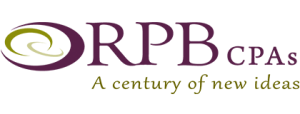Blog
2021 individual taxes: Answers to your questions about limits
Many people are more concerned about their 2020 tax bills right now than they are about their 2021 tax situations. That’s understandable because your 2020 individual tax return is due to be filed in less than three months (unless you file an extension). However, it’s a good idea to acquaint yourself with tax amounts that may have changed for 2021. Below are some Q&As about tax amounts for this year. Be aware that not all tax figures are adjusted annually for inflation and even if they are, they may be unchanged or change only slightly due to low inflation. In
Need another PPP loan for your small business? Here are the new rules
Congress recently passed, and President Trump signed, a new law providing additional relief for businesses and individuals during the COVID-19 pandemic. One item of interest for small business owners in the Consolidated Appropriations Act (CAA) is the opportunity to take out a second loan under the Paycheck Protection Program (PPP). The basics The CAA permits certain smaller businesses who received a PPP loan to take out a “PPP Second Draw Loan” of up to $2 million. To qualify, you must: Employ no more than 300 employees per physical location, Have used or will use the full amount of your first PPP
Employees: Don’t forget about your FSA funds
Many employees take advantage of the opportunity to save taxes by placing funds in their employer’s health or dependent care flexible spending arrangements (FSAs). As the end of 2020 nears, here are some rules and reminders to keep in mind. Health FSAs A pre-tax contribution of $2,750 to a health FSA is permitted in both 2020 and 2021. You save taxes because you use pre-tax dollars to pay for medical expenses that might not be deductible. For example, they wouldn’t be deductible if you don’t itemize deductions on your tax return. Even if you do itemize, medical expenses must exceed
The QBI deduction basics and a year-end tax tip that might help you qualify
If you own a business, you may wonder if you’re eligible to take the qualified business income (QBI) deduction. Sometimes this is referred to as the pass-through deduction or the Section 199A deduction. The QBI deduction: Is available to owners of sole proprietorships, single member limited liability companies (LLCs), partnerships, and S corporations, as well as trusts and estates. Is intended to reduce the tax rate on QBI to a rate that’s closer to the corporate tax rate. Is taken “below the line.” In other words, it reduces your taxable income but not your adjusted gross income. Is available regardless
2021 dollar limits and thresholds for 401(k)s and similar plans
The IRS recently announced the 2021 dollar limits and thresholds for retirement plans, reflecting the latest cost-of-living adjustments. Here are some relevant amounts for 401(k)s and similar plans: Annual contributions. The limit on annual contributions to 401(k) and other defined contribution plans will increase to $58,000 (up from $57,000 for 2020). Compensation. The annual limit on compensation that can be taken into account for contributions and deductions will increase to $290,000 (up from $285,000). Elective deferrals. The annual limit on elective deferrals will remain at $19,500 for 401(k), 403(b) and 457 plans, as well as for Salary Reduction Simplified Employee Pension
What tax records can you throw away?
Now that you’re finally done filing last year’s return, you might wonder: Which tax records can you toss out? Now is a good time to go through old tax records and see what you can discard. The general rules At minimum, you should keep tax records for as long as the IRS has the ability to audit your tax return or assess additional taxes, which generally is three years after you file your return. This means you potentially can get rid of most records related to tax returns for 2016 and earlier years. However, the statute of limitations extends to
Gifts in kind: New reporting requirements for nonprofits
On September 17, the Financial Accounting Standards Board (FASB) issued an accounting rule that will provide more detailed information about noncash contributions charities and other not-for-profit organizations receive known as “gifts in kind.” Here are the details. Need for change Gifts in kind can play an important role in ensuring a charity functions effectively. They may include various goods, services and time. Examples of contributed nonfinancial assets include: Fixed assets, such as land, buildings and equipment, The use of fixed assets or utilities, Materials and supplies, such as food, clothing or pharmaceuticals, Intangible assets, and Recognized contributed services. Increased scrutiny by
2020 Q4 tax calendar: Key deadlines for businesses and other employers
Here are some of the key tax-related deadlines affecting businesses and other employers during the fourth quarter of 2020. Keep in mind that this list isn’t all-inclusive, so there may be additional deadlines that apply to you. Contact us to ensure you’re meeting all applicable deadlines and to learn more about the filing requirements. Thursday, October 15 If a calendar-year C corporation that filed an automatic six-month extension: File a 2019 income tax return (Form 1120) and pay any tax, interest and penalties due. Make contributions for 2019 to certain employer-sponsored retirement plans. Monday, November 2 Report income tax withholding and FICA
Levels of assurance: Choosing the right option for your business today
The COVID-19 crisis is causing private companies to re-evaluate the type of financial statements they should generate for 2020. Some are considering downgrading to a lower level of assurance to reduce financial reporting costs — but a downgrade may compromise financial reporting quality and reliability. Others recognize the additional risks that work-from-home and COVID-19-related financial distress are causing, leading them to upgrade their assurance level to help prevent and detect potential fraud and financial misstatement schemes. When deciding what’s appropriate for your company, it’s important to factor in the needs of creditors or investors, as well as the size, complexity
External audits offer many benefits to nonprofits
Your nonprofit organization may be required to hire an independent outside CPA to audit its books, depending on its annual gross receipts and other factors. Even when external audits aren’t mandated, however, they’re often recommended. These audits can provide assurance to donors and other stakeholders that your organization is operating with integrity and within acceptable accounting guidelines. Internal audits Most nonprofits conduct internal audits on a regular basis, perhaps quarterly or annually. These audits are typically performed by a board member or a member of the organization’s staff. The objective is to review the organization’s financial statements, accounting policies and


